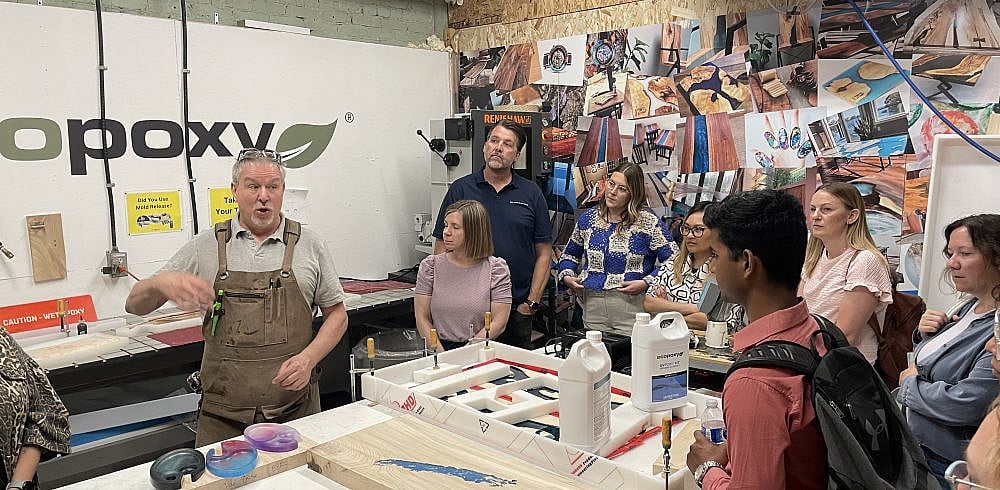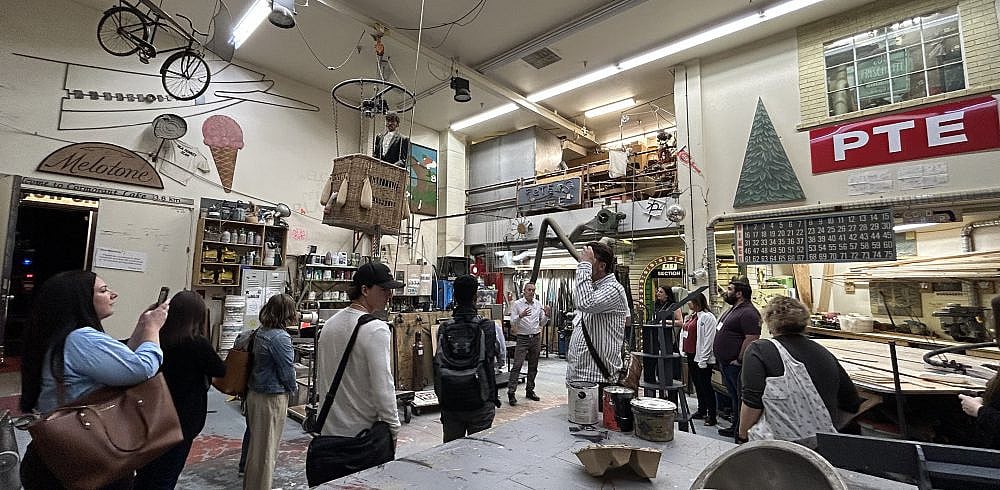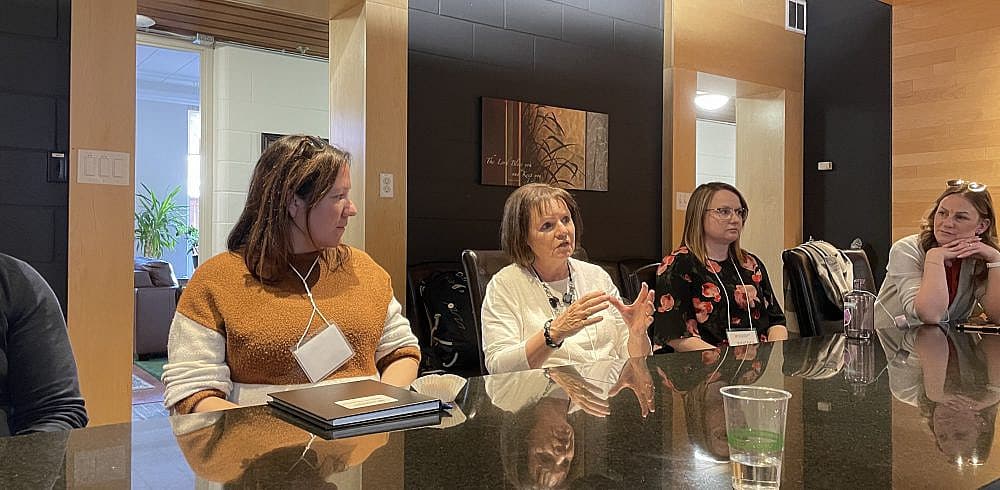 4-minute read
4-minute read
Post Contributed by Damian Crowley, Business Development Officer, Economic Development Winnipeg
Leadership Winnipeg Class of 2024-2025
Leadership Winnipeg truly offers a backstage pass to some of the most dynamic people and places shaping our city. This particular day took us from large-scale industrial manufacturing to grassroots health innovation, showcasing just how diverse Winnipeg’s strengths are.
We began at Motor Coach Industries, where we toured their impressive production facility and saw the motor coach manufacturing process up close. Owned by NFI Group—also the parent company of New Flyer—the company has deep Winnipeg roots, operating here since 1933. As the largest motor coach and bus maker in North America, Motor Coach’s impact is massive. We learned that a single bus frame includes around 8,000 welds and that 36 rolls of masking tape are used during the painting process. After the tour, we had the privilege of hearing from Paul Soubry, CEO of NFI, who shared insights into the business and his leadership journey. From $650,000 motor coaches to London’s iconic double-deckers (of which NFI supplies 60%), the company’s reach is global. Soubry left us with this leadership reflection: “Are they following you because they have to, or because they want to?” A simple but powerful question for anyone leading a team.
Next, we headed to the North Forge Fabrication Lab, a space that felt alive with possibility. This hands-on makerspace is home to entrepreneurs, inventors, and small businesses working on everything from prototypes to production. We walked past rows of 3D printers, CNC machines, and laser cutters—all tools to help turn ideas into real products. What stood out most was the energy: people building things, testing concepts, and taking risks. It reminded us how much innovation is brewing right here in Winnipeg, often behind the scenes.
Our day wrapped up with a visit to Seven Oaks General Hospital, a stop that was anything but conventional. The hospital, established in 1981 through years of community advocacy, has grown into a full health campus with a strong focus on wellness, prevention, and chronic disease management. We began with a tour of the Wellness Institute, Canada’s first hospital-owned medical fitness facility. The space was bright, welcoming, and impressively multi-purpose—rehab patients and gym-goers working out side by side. The success of this model has led to it being replicated several times internationally, including in China.
We then moved downstairs for a presentation from Michelle Di Nella, Executive Director of the Chronic Disease Innovation Centre (CDIC). Her talk offered a compelling look at how healthcare can go beyond treatment to focus on prevention and long-term outcomes. CDIC is a global leader in kidney health and home to the Kidney Failure Risk Equation, a tool used worldwide to help identify high-risk patients and intervene earlier. Their research doesn’t stop there—they also explore diabetes, cardiovascular disease, Indigenous health, and nutrition, often working with partners like the Mayo Clinic and Cleveland Clinic. Remarkably, their small team produces around 50 peer-reviewed publications each year.
One standout initiative involves the commercialization of clinical nutrition products. The team has developed a high-protein, low-sugar egg pudding designed for dialysis patients. Using egg whites, it delivers essential nutrition in a more appealing form than what’s currently available on the market. With funding support, the CDIC is now advancing its commercialization. They’re also partnering with Protein Industries Canada to explore new plant-based protein options. It’s a meaningful example of how clinical research, community health, and innovation can intersect to create practical, scalable impact.
Our day offered a powerful snapshot of Winnipeg’s innovation ecosystem—from world-class manufacturing at Motor Coach Industries to grassroots ingenuity at North Forge and groundbreaking health research at Seven Oaks. Each stop reminded us that leadership takes many forms, but at its core, it’s about building something that improves lives.




